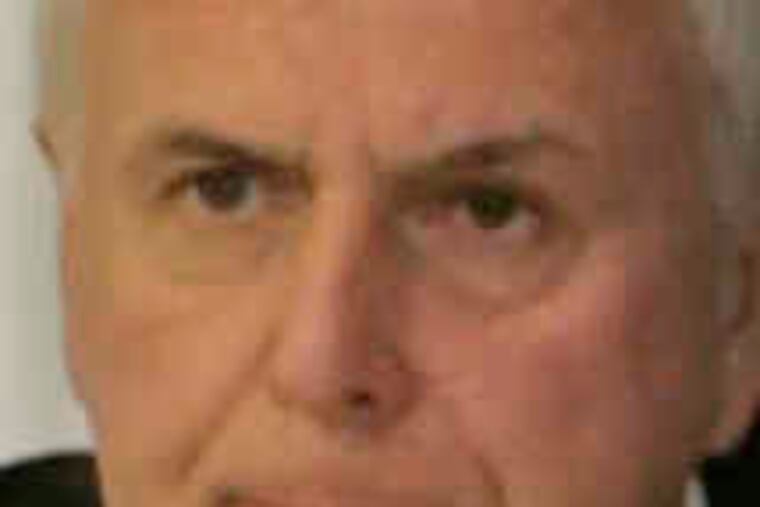Castille relents, paving way for inquiry on courts
Chief Justice Ronald D. Castille of the Pennsylvania Supreme Court has dropped his opposition to a state Senate inquiry on the Philadelphia courts, clearing the way for two parallel investigations of the city's troubled criminal-justice system.

Chief Justice Ronald D. Castille of the Pennsylvania Supreme Court has dropped his opposition to a state Senate inquiry on the Philadelphia courts, clearing the way for two parallel investigations of the city's troubled criminal-justice system.
Castille, who this month blasted the proposed investigation as "counterproductive and disruptive," softened his view after a conversation with State Sen. Stewart J. Greenleaf, sponsor of the measure that calls for the legislative review.
The chief justice, who has appointed his own panel to overhaul the Philadelphia court system, said Wednesday that Greenleaf had promised that the Senate inquiry would not duplicate the high court's efforts.
"The senator assured me that it's not going to duplicate what we're already doing and it's not going to interfere," said Castille, a former Philadelphia district attorney.
Both inquiries were triggered by an Inquirer series that depicted a court system beset by low conviction rates, rampant witness fear, and the dismissal of thousands of cases each year without any decision on the merits. The series also explored how tens of thousands of defendants have skipped court, flouting the system's bail system.
"All I want in Pennsylvania is to have justice in the courtroom," said Greenleaf, a Republican who represents parts of Bucks and Montgomery Counties. Given the problems in Philadelphia's court system, he said, it was appropriate for the legislature to to do its own review.
"I'm the chairman of the Judiciary Committee," he said. "I'm going to sit on my hands and watch this go by without doing anything?"
Castille and Greenleaf said the Senate panel would focus, at least initially, on witness intimidation and the dysfunctional bail system.
After initially vowing he'd order judges and court personnel not to cooperate with the Senate inquiry, Castille, like Greenleaf a Republican, said the courts would "work cooperatively" with senators.
In an interview, Castille stopped short of giving Greenleaf unfettered access to judges and court administrators. He said he had asked the senator to check with him before reaching out to court staff.
Greenleaf said Wednesday that he was pleased with Castille's change of heart.
"We worked it out," he said in an interview. "He said he would cooperate with our review."
Castille, working with Justice Seamus McCaffery, formed a panel of 12 experts in March to address the Inquirer's findings and recommend solutions.
Already, the high court has made changes in the way criminal cases are handled in the city courts and taken steps to see that more cases are heard on their merits, and not discharged early in the process.
When Greenleaf called for a Senate inquiry this month, Castille bristled at what he saw as an imposition on the courts' jurisdiction. He vowed to lobby top senators to oppose the plan, but after speaking with Greenleaf on Monday, he abandoned that idea.
On Tuesday, the Judiciary Committee approved without opposition a resolution calling for the inquiry. Its approval by the full Senate seems assured when legislative sessions resume next month, aides to Greenleaf said.
State Sen. Michael Stack (D., Phila.), who joined Greenleaf's call for a Senate review, called The Inquirer's findings "alarming and horrifying" on Tuesday as the Judiciary Committee considered the proposal. Stack said the legislature had to act.
The senators want the Joint State Government Commission, an investigative arm of the legislature, to assist a 30-member panel of experts, including prosecutors, defense lawyers, and judges, to study Philadelphia's court system and recommend reforms.
When he announced his plans, Greenleaf said his panel would seek input from defense lawyers, notably from the Defender Association, who have complained they were being shut out of the Supreme Court's review. But he insisted Wednesday that his committee would not serve as mere counterweight to the Castille panel.
"I'm not supposed to be an advocate of one side or another," Greenleaf said. "Our job is to see that justice is being done in the courts."